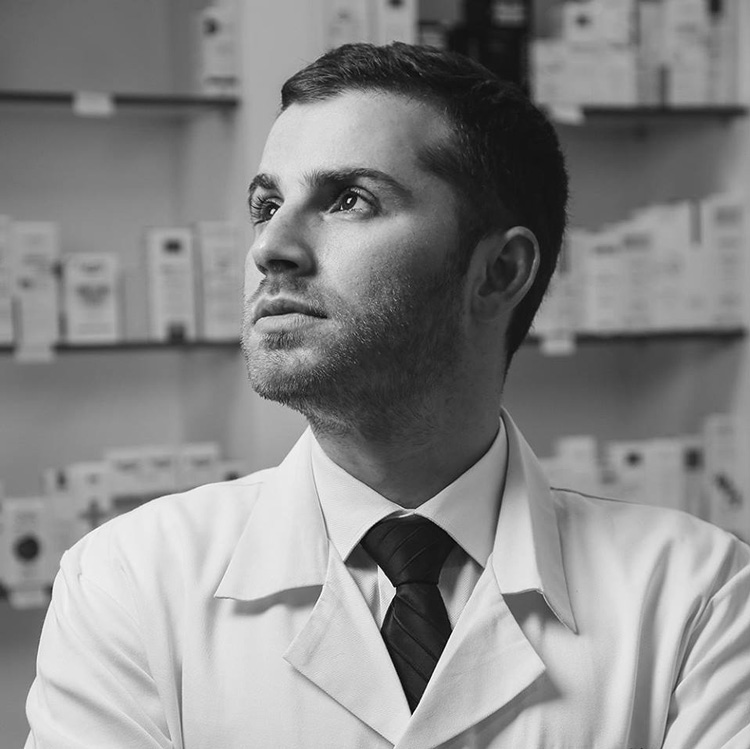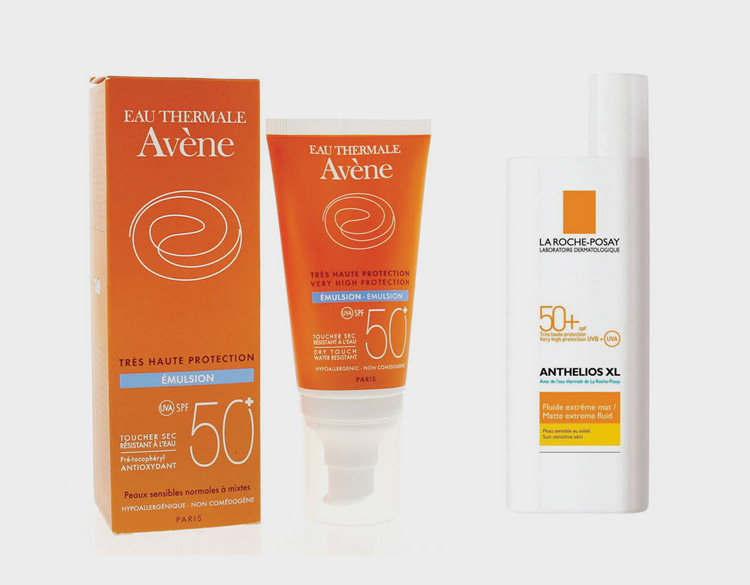Dr. Constantine El Habr is a well-known Lebanese physician who graduated with a BS degree in Biology from the American University of Beirut (AUB). He studied the basic sciences of medical school at the University of Balamand (UOB) and completed his clinical rotations at Saint Georges University Medical Center (SGUMC). Dr. El Habr spent five months of electives training in general dermatology and dermatopathology at Baylor University, University of Cincinnati, Johns Hopkins University, Cleveland Clinic, and Yale University.
The expert on ageing and skincare has shared his secrets that are usually reserved for his clients. Here’s what you need to know to future-proof your skin during the summer season.
Finding the perfect sunscreen and the right level of protection can be tricky! What number SPF would you most suggest?
Using sunscreen on a daily basis is crucial to prevent early signs of aging, skin pigmentation, and skin cancers. Everyone should apply sunscreen with an SPF30 every day and SPF50 in case of continuous sun exposure (beach, outdoor activities, etc.).
Sun protection shouldn’t stop at SPF. What are some other ways we can shield our skin from the harsh sun?
SPF30 means that it would take 30 times longer to burn than not wearing any sunscreen. That means if it would take a minute to burn without sunscreen, it would take 30 minutes to burn after applying the recommended amount of SPF30. So using a sunscreen doesn’t completely block sun-rays. For that reason, using a sunshield is very important especially for people with light skin colour. The best way is to apply sunscreen every 90 minutes, wear a hat, stay in the shade, wear protective clothing, and avoid sun exposure between 10:00 AM and 2:00 PM.
Any tips on how to get sun-kissed safely or how can we minimize the damage?
First you have to understand your tanning time. Your skin reaches a tanning point when it can’t produce any more melanin so it’s pointless to sit in the sun all day. For that reason, you should always seek some shade. Taking breaks from the sun will reduce UV intensity and your sunburn risk and means your tan will be healthier and long-lasting. Many people tend to use tan-boosting creams. For a better tan, it is always best to substitute these creams with supplements. Taking a daily 25g beta-caretone supplement boosts skin’s natural defense against UV by improving its ability to tan. It is always best to start these supplements 4 weeks before your first sun exposure. After sun exposure, it is very important to drink lots of fluids rich in Vitamin C, hydrate the skin daily using post-sun exposure lotions (La Roche-Posay and Avène brands have excellent lotions), and treat sunburns if any.
What’s the most common misconception about the sun and skin that you encounter?
Many people think that sun exposure can cause premature skin aging, and skin cancer only in people with light coloured skin. Unfortunately, sun rays do not discriminate. Anyone can get skin cancer and premature aging. Although people with lighter skin are at increased risk, but people with a darker skin color can experience similar side effects too.
How often do you suggest getting a skin checkup from a dermatologist?
Everyone should get a skin a checkup by a dermatologist on a yearly basis. In case of a personal history of skin cancer, complete skin checkup should be done more regularly. One should also perform regular skin checks to look for new moles, lumps and discoloration of the skin. If there is a changing mole, a new lump or growth, one should always consult the dermatologist for further evaluation.
How can someone quit breaking out from sunscreen?
Choosing the right sunscreen for daily use is extremely important in preventing breakouts. Most people choose their sunscreen based on its SPF level only. Unfortunately, choosing the wrong sunscreen can lead to unwanted side effects such as acne. For that reason, choosing the right consistency of the sunscreen is very important. People with oily skin using a thick sunscreen – a cream instead of a lotion – can close the opening of the oil secreting glands which lead to the formation of black and whiteheads. White and blackheads will get inflamed. This is when we start seeing red pimples on the face. If you have an oily skin, I recommend using one of the following: Anthelios XL Fluid Extreme by La Roche-Posay or Eau Thermale Avène 50+ Emulsion. If you have a dry skin, then in this case it is better to use a cream not a lotion. Both brands have sunscreen with a thicker consistency.
How many days does it take for one’s skin to adapt to a new product?
It all depends on the product being used and its active ingredient. In most cases, the skin adapts really quickly; however, we never see any changes before 4-6 weeks of regular use. This is mainly due to skin turn-over that usually takes up to 6 weeks. For that reason, one should never expect to see great results before 6 weeks of regular, consistent treatment.
What should men do, ideally, to look after their skin?
Men in general do not tend to follow a skincare regimen. If they do, they are rarely consistent. A lot of men think skincare is only necessary when they have a specific issue like acne, redness, wrinkles, or other typical skin care concerns. Men should know that daily skin care routine will prevent these skin conditions in the first place. Here are my recommendations: wash your face morning and night, and use a scrub at least once or twice a week. Don’t forget, to use a hydrating cream at night and wear sunscreen in the morning.
What is your ultimate summer skincare tip?
People wait for the summer to get a nice tan and that is totally understandable. Having a nice tan has always been a trend. Well, you can always get a nice tan without harming your skin. I personally have a light colored skin which makes my skin more prone to side effects when I expose myself to the sun. To prevent those side effects, I use sunscreen SPF50 every 90 minutes. And guess what I still get a tan at the end of the day without getting sunburn. People with a darker skin can use a sunscreen SPF30 instead of SPF50. Once my skin starts building up colour (Melanin- the pigment that gives colour to the skin), I shift to SPF30 simply because melanin prevents sunburns. However, using sunscreen is not only to protect my skin from sunburns, it also prevents uneven skin colouring, redness, and skin cancers among other things. So even if you are tanned, or never got sunburnt, you should always use sunscreen.
What’s the one skin care message you’d like to spread?
That skin never forgets. The only side-effect that you experience right after excessive sun exposure is sunburn, but you should always keep in mind that major side-effects won’t show until later in time. It is similar to the side effects of smoking on the lungs; we almost never get lung cancer after one year of smoking, most side-effects of smoking cigarettes start showing years and years later. The same goes for the skin.
By Dana Mortada

















